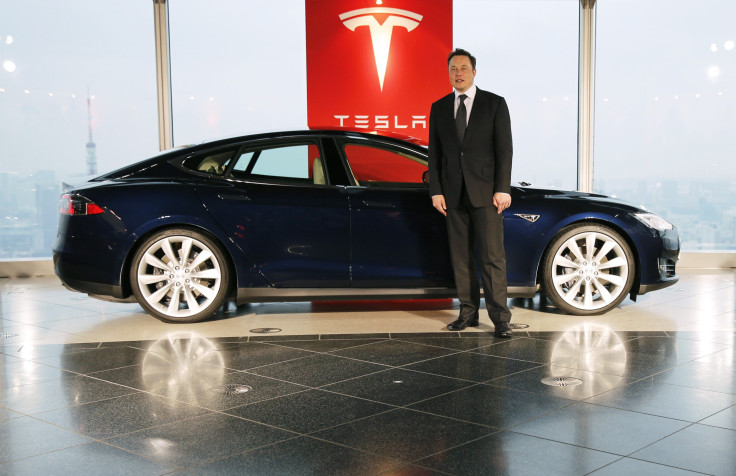2017 Tesla Model 3 Starting Price: $50,000, According To A Sobering Report On Tesla’s Future Challenges

When Tesla CEO Elon Musk announced his company’s $5 billion “Gigafactory” near Reno, Nevada, last month, he promised that the massive facility would help the electric carmaker bring down battery-cell costs and continue to transform the automobile industry.
But a new report from Advanced Automotive Batteries of Oregon House, California, warns that some of Tesla’s goals may be harder to reach than the company is letting on. Not only will competitors step up with improved longer-range, less costly low-energy battery cells to challenge the lower-cost Tesla Model 3, but the report predicts the car that’s supposed to bring Tesla to the masses will either get shorter range than expected or will cost more than the $35,000 price target Tesla is aiming for.
“I used my best understanding to project the likely course of events in the next 3-5 years based on input from many industry veterans. Nobody can predict the future; we can just analyze the issues at hand,” Menahem Anderman of AAB told International Business Times in an email Wednesday.
Anderman says in his report that it’s unlikely Tesla will be able to bring down the cost of its EV battery packs, which are measured in dollars per kilowatt hour, enough to deliver a Model 3 with more than 200 miles per charge (mpc). Most industry analysts believe in order to offer less expensive electric vehicles powered by these high-energy cells, the price needs to drop below $200 per kWh. The extended-range Telsa Model S is powered by an 85 kWh battery pack, which gives it 265 mpc compared to the Nissan Leaf’s 24 kWh with 84 mpc.
Anderman, who correctly predicted years ago U.S. government efforts to stimulate a lithium-ion battery manufacturing industry in Michigan, says in his report that bringing the cost of electric car batteries below $200 per kWh is “unlikely before 2020.”
If this assessment is accurate, Tesla will have to sell a Model 3 with a range of less than 200 mpc, or raise the starting price to $50,000, roughly the cost of a BMW 5 Series luxury car. “I wish Tesla proves me wrong and their success is larger than what my study forecasts, but I have provided in the study the most realistic, unbiased, expert assessment I could,” Anderman told IBTimes.
Some of the more revealing observations from Anderman’s report:
* Tesla won’t see battery cost savings from its Gigafactory until at least 2018, a year after the smaller, lower-priced Model 3 is due out.
* Tesla’s battery pack design connects hundreds of small 18650 cells (pdf) interconnected with wires inside a rectangular aluminum case, which allows power to flow through even if individual cells fail. But on the downside, the complex wiring of four welding points for each cell “is unattractive from the standpoint of reliability.”
* Within three years, automakers could produce the larger, low-power batteries (like the ones used in the Nissan Leaf and other small, low-range EVs) with as much as double the current range for the same price as Tesla’s packs within three years. “Most automakers only plan for an EV with 120-180 mile range,” said the report. A competing EV with a range of 180 miles per charge at a lower price would be a major challenge to Tesla’s Model 3, especially if it doesn’t top 200 miles per range, or come in at $35,000.
* Tesla’s battery life will last 100,000 miles “in moderate climates” based on the assumption that most users will charge the car to 80 percent or less of its capacity, as recommended by Tesla. Climate extremes, say Anderman and others, reduce battery life. Tesla offers a warranty that covers batteries for up to eight years at unlimited miles.
* Tesla’s total sales in China, where it began selling cars this year, could top 200,000 by 2020, but it would require Tesla to shift some production there. That move would skirt China’s hefty foreign car import tariff, but under current Chinese commerce law that would require Tesla to have a domestic partner.
© Copyright IBTimes 2024. All rights reserved.






















